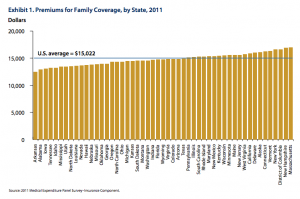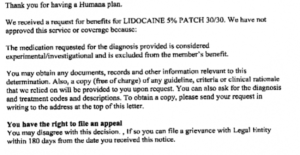 The ongoing migration by doctors from private practice (self-employment) to working for a hospital or health system appears to have passed a tipping point, and many physicians are unhappy and considering a change.
The ongoing migration by doctors from private practice (self-employment) to working for a hospital or health system appears to have passed a tipping point, and many physicians are unhappy and considering a change.
 The ongoing migration by doctors from private practice (self-employment) to working for a hospital or health system appears to have passed a tipping point, and many physicians are unhappy and considering a change.
The ongoing migration by doctors from private practice (self-employment) to working for a hospital or health system appears to have passed a tipping point, and many physicians are unhappy and considering a change.
Fueled by financial pressures, regulatory changes, and the uncertainty of continuing change the trend is increasing. The recruitment of doctors into solo practice settings is “nearly nonexistent,” according to physician recruiting firm Merritt Hawkins.
More than half (52 percent) of the office-based physician practices tracked by the healthcare information firm SK&A, are owned by hospitals, health systems or medical groups.
What’s more, many doctors intend to make other changes. “In the next one to three years, over 50 percent of physicians plan to cut back on patients, work part-time, switch to concierge medicine, retire or take other steps that would reduce patient access to their services,” according to a Merritt Hawkins survey for The Physician’s Foundation.
Disillusionment drives desire for change…
Overall, the Physicians Foundation 2012 Survey of America’s Physicians revealed attitudes behind these changes, citing “a high level of disillusionment among doctors regarding the medical practice environment and the current state of the healthcare system.”
The findings—with over 13,575 physicians responding—indicates that many intend to take one or more steps likely to reduce patient access to their services, limiting physician availability at a time when doctors already are in short supply. The overtone is generally negative among the key findings:
- Over three quarters of physicians – 77.4 percent – are somewhat pessimistic or very pessimistic about the future of the medical profession.
- Over 84 percent of physicians agree that the medical profession is in decline.
- The majority of physicians – 57.9 percent — would not recommend medicine as a career to their children or other young people.
- Over one third of physicians would not choose medicine if they had their careers to do over.
- Over 60 percent of physicians would retire today if they had the means.
- Over 52 percent of physicians have limited the access Medicare patients have to their practices or are planning to do so.
- Over 26 percent of physicians have closed their practices to Medicaid patients.
- Over 59 percent of physicians indicate passage of the Patient Protection and Affordable Care Act (i.e., “health reform”) has made them less positive about the future of healthcare in America.
- Over 82 percent of physicians believe doctors have little ability to change the healthcare system.
- Close to 92 percent of physicians are unsure where the health system will be or how they will fit into it three to five years from now.
- Over 62 percent of physicians said Accountable Care Organizations (ACOs) are either unlikely to increase healthcare quality and decrease costs or that that any quality/cost gains will not be worth the effort.
Physicians are not uniform in their opinions, according to the study. “Younger physicians, female physicians, employed physicians and primary care physicians are generally more positive about their profession than older physicians, male physicians, practice owners and specialists.”







